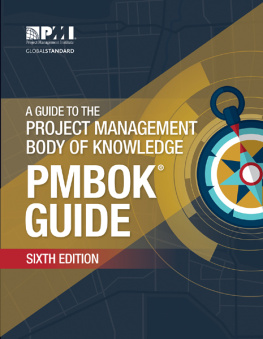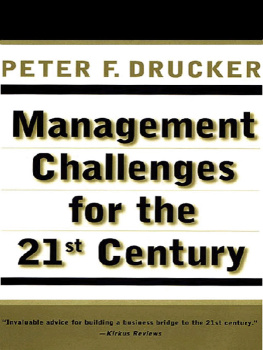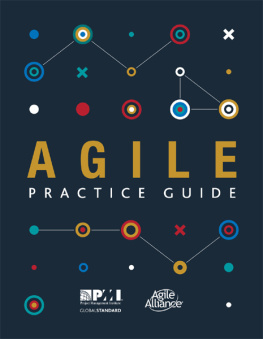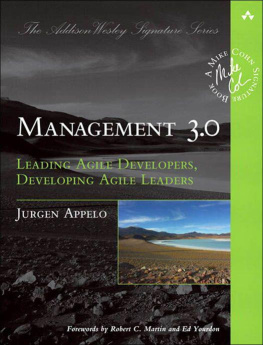Beyond Management
Taking Charge at Work
Mark Addleson


Mark Addleson 2011
All rights reserved. No reproduction, copy or transmission of this publication may be made without written permission.
No portion of this publication may be reproduced, copied or transmitted save with written permission or in accordance with the provisions of the Copyright, Designs and Patents Act 1988, or under the terms of any licence permitting limited copying issued by the Copyright Licensing Agency, Saffron House, 6-10 Kirby Street, London EC1N 8TS.
Any person who does any unauthorized act in relation to this publication may be liable to criminal prosecution and civil claims for damages.
The author has asserted his right to be identified
as the author of this work in accordance with the Copyright,
Designs and Patents Act 1988.
First published 2011 by
PALGRAVE MACMILLAN
Palgrave Macmillan in the UK is an imprint of Macmillan Publishers Limited, registered in England, company number 785998, of Houndmills, Basingstoke, Hampshire RG21 6XS.
Palgrave Macmillan in the US is a division of St Martins Press LLC, 175 Fifth Avenue, New York, NY 10010.
Palgrave Macmillan is the global academic imprint of the above companies and has companies and representatives throughout the world.
Palgrave and Macmillan are registered trademarks in the United States, the United Kingdom, Europe and other countries.
ISBN 9780230308169
This book is printed on paper suitable for recycling and made from fully managed and sustained forest sources. Logging, pulping and manufacturing processes are expected to conform to the environmental regulations of the country of origin.
A catalogue record for this book is available from the British Library.
A catalog record for this book is available from the Library of Congress.
10 9 8 7 6 5 4 3 2 1
20 19 18 17 16 15 14 13 12 11
Printed and bound in Great Britain by
MPG Group, Bodmin and Kings Lynn
For Rob and Kate (a.k.a. Dan and The P)
they have always been beyond management
CONTENTS
LIST OF FIGURES
ACKNOWLEDGMENTS
Many peoplefriends, colleagues, and othershave had a hand in shaping this book. Dana Dolan generously read the final version and offered careful, detailed comments. She also asked me to remind readers who have the stamina to tackle the chapter notes that there is another book there (I have the impression she thinks it is the more interesting one!). Jessica Heineman-Pieper, Tony Joyce, Art Kleiner, Mark Leheney, Eric Meyer, Neil Olonoff, and Bill Tulloh all went beyond the call of duty and/or friendship in reading and commenting on typescripts.
Working with Jennifer Berger was a spur to start putting fingers to keyboard. Jeff Conklin introduced me to wicked problems many years ago and things have gone downhill ever since. My consulting colleagues, Scott Brumburgh, Christiane Frishmuth, and Mikaela Seligman, have tried very hard to keep me focusedagainst my natural impulseson practical matters; as has Raj Chawla, to whom I owe a special thank you for his encouragement as well as his friendship. From the Hermanus crew, who adopted us during Cape winters, I want to thank Beth and Noel Hunt, of Hemingways Bookshop, for their company and encouragement.
On the publishing side, John Wright, literary agent, very generously guided me through the process of creating a prospectus, then Stephen Rutt at Palgrave Macmillan was kindor, Id like to think, wiseenough to take the manuscript. I am grateful to all who have helped turn words and a few images into a handsome volume, in particular, Eleanor Davey-Corrigan at Palgrave Macmillan, and Keith Povey with Nick Fox, who, as editors, enabled me to handle the hurdles of the important final phases. Ioana Belcea did the marvelous drawings for . How fortunate I am to have a gifted iconographer as a neighbor.
Im especially privileged to work with bright, experienced graduate students, my real teachers. Their enthusiasm and willingness to run with half-baked ideas brought this book to life.
Lastly, but certainly not leastly, I am deeply grateful to Jen, companion and advisor on this and many other journeys. Beyond Management would not have seen the light of day without her wisdom, humor, patience, and care.
MARK ADDLESON
The author and publishers are grateful to the following for permission to reproduce copyright material as indicated:
Two pictures of factory-work, ca. 1930 (p. 66)
Source: Behind the Scenes in the Machine Age, 1931, a film produced by the Womens Bureau of the United States Department of Labor.
Diagram of an organizational network (p. 68)
Source:Valdis Krebs (www.orgnet.com/decisions.html). Reproduced with permission.
Work practices (p. 101)
Source: Adapted from Etienne Wenger, Communities of Practice: Learning, Meaning and Identity, p. 63. Used by permission of Cambridge University Press. Copyright c 1998 by Etienne Wenger.
Manifesto for Agile Development box (p. 113)
Source: The Agile Alliance (agilemanifesto.org). Reproduced with permission.
The waterfall model (p. 115)
Source: Adapted from a diagram by Paul Hoadley. Used with his permission.
Letting go! (p. 139)
Drawn by Ioana Belcea. Used with her permission.
A delicate balance (p. 147)
Drawn by Ioana Belcea. Used with her permission.
A pyramid-maze puzzle (p. 206)
Source: Based on a puzzle marketed by Loncraine Broxton. Used with permission of the Lagoon Trading Co. Ltd.
CHAPTER
The end of the line
Talk about a revolution
Management is dead, but dont take my word for it. Peter Drucker saw this first. He begins The Practice of Management, the book that made him famous, with a bold prediction: management will remain a basic and dominant institution perhaps as long as Western civilization itself survives.
For most of his long and illustrious career, Drucker, who had a large following, wrote about how to be a good manager, maintaining that management is fundamental to a prosperous and progressive society. Toward the end of his career, the father of modern management turns his back on the profession he helped to establish, warning that management has run its course. He now says that management practices are counterproductive, meaning they do the opposite of what you want. Intended to make organizations more efficient and more profitable, this is an admission that they are actually disorganizing. What should we make of this dramatic reversal?
Prolific writer that he was, it is relatively easy to keep track of Druckers intellectual journey and see why he made this U-turn. You might say it was simply a matter of putting two and two together, although doing the math needed someone not only well versed in management but also attuned to what was happening in the world of work.factory-work had been solitary, repetitive, mindless, with workers little more than automatons. Knowledge-work is an entirely different story.
Manufacturing jobs have all but disappeared, off-shored to countries where labor is cheap, productive, and, for lack of regulations, exploitable. The rest of usadministrators, bankers, consultants, designers, entertainers, IT specialists, journalists, lobbyists, musicians, nurses, restaurateurs, secretaries, social workers, trainers, and writersare knowledge workers, as are janitors, landscape crews, and plumbers. Knowledge workers organize themselves. With a common interest in what they are doing, they cooperate, share knowledge, learn from one another, assign tasks, and make decisions while they work. Using management tools and techniques to organize knowledge-work makes a mess of work, which weve been doing for half a century or more.
Next page











